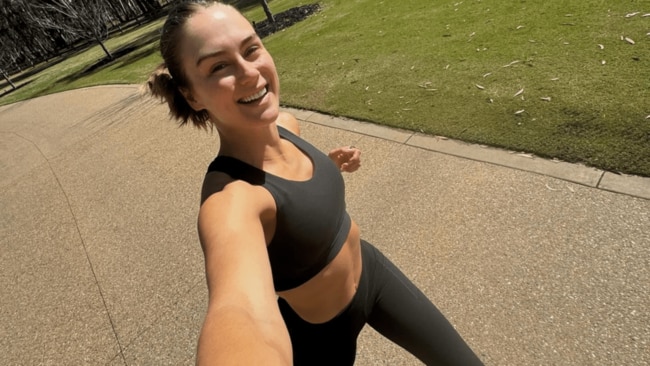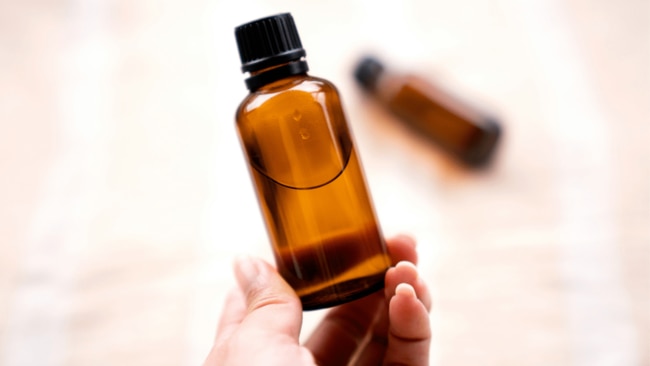Steph Claire Smith: Tempted by a TikTok diet trend? Read this first
Don’t believe everything you watch

Lifestyle
Don't miss out on the headlines from Lifestyle. Followed categories will be added to My News.
Social media is flooded with quick fixes and so-called “miracle” weight-loss hacks, many of which promise instant results with minimal effort. But trust me, if it sounds too good to be true, it probably is.
While they may seem tempting, especially with the constant influx of before-and-after photos, these trends can be incredibly misleading and, in most cases, harmful. Diet culture has convinced so many of us that there’s an easy way to have a ‘healthier’ body, but true health doesn’t come in a jar or with a one-night transformation.
Unfortunately, many quick fixes - like the latest castor oil belly button trend (which is absolutely wild) - don’t just lack real results; they perpetuate a toxic cycle of unrealistic expectations and even dangerous behaviours.
I’ve asked Kic’s dietitian and nutritionist, Olivia Morrison, to break down what really happens with these quick-fix fads and why they can be harmful.

What actually happens when you apply castor oil topically?
Putting castor oil on your stomach or in your belly button before bed isn’t necessarily bad, because it doesn’t do much of anything. At best, it’ll hydrate your skin. The claims that sleeping with castor oil in your navel causes weight loss are absolutely ridiculous.
From what I’ve seen online, people doing this trend are performing a type of abdominal massage when applying the castor oil. Abdominal massage is a proven and effective technique to improve digestive symptoms like bloating and constipation.
The castor oil packs being sold with this trend are essentially a strap that wraps around your stomach to keep the oil in your belly button, these do a similar thing.
The pressure applied to the abdomen can reduce gas. Both the abdominal massage and stomach packs are creating an illusion of ‘overnight weight loss’ but they’re actually just ways you can improve digestion and gut motility.
Applying castor oil onto your skin isn’t going to create a drastic caloric shift needed for fat loss, nor is it a ‘gateway’ to your gastrointestinal tract. Adult belly buttons aren’t connected to an organ, it’s just a scar. There are numerous layers of skin, fat, connective tissue and muscle before reaching the intestines and lucky for us, our body isn’t permeable enough to have oils or similar topical substances absorb right through.

The dangers of this trend?
Several aspects of this trend are promoting disordered eating behaviours.
Firstly, almost every social media post promoting it is doing a ‘fit check’ to show their audience a drastic before and after transformation. The medical term for this is ‘body checking’ and is heavily linked to body dysmorphia and creating disordered eating behaviours.
The viewer doesn’t have the full picture of these ‘fit checks’ so it can easily deceive people into believing a weight loss fad works, when in reality the before and after video/picture was taken a long time apart or there are other facts at play e.g., diet modification.

Castor oil is classified as a stimulant laxative so those promoting oral consumption of it online for weight loss are concerning. It’s like we’re stepping back to 2013 with the laxative ‘detox’ teas all over again.
The laxative abuse is common in the eating disorder community, often used as a way to hide restrictive eating behaviours and malabsorb food, so the promotion and normalisation of consuming castor oil online are very worrying as vulnerable people are most likely to see this content.
Research shows that using stimulant laxatives like castor oil doesn’t increase fat loss and isn’t an effective strategy to lose weight; they predominately cause dehydration and can irreversibly damage your gut.
While castor oil is one of the oldest types of laxatives, it’s not recommended by health professionals anymore as there are so many more effective options available with fewer adverse effects. It’s important to note that castor oil laxatives are not safe for people with kidney or liver issues and can interact with medications.
Advice for people who keep searching for weight-loss quick fixes
If it sounds too good to be true, it probably is.
It’s important to question who you’re getting weight loss or health advice from online… Are they a trusted source? Is this backed up by any health professionals? Is there a monetary motive behind telling me this?
Unfortunately, what works for sustainable, healthy weight loss isn’t something you can purchase on Amazon. It’s about modifying your lifestyle with small, consistent changes over time.
Most people know how to eat healthy or what areas they need to improve on to lose weight but struggle with implementing it, that’s why seeking professional support is so effective.
Originally published as Steph Claire Smith: Tempted by a TikTok diet trend? Read this first


